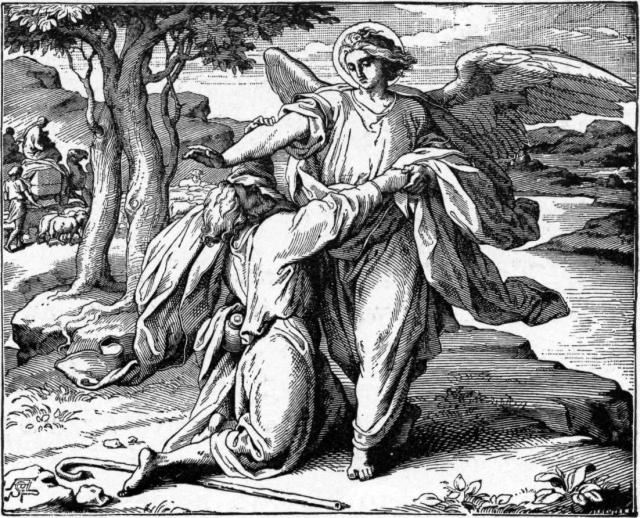The word “Israel” first shows up in the Bible when Jacob wrestles with the Angel of the Lord, and the Angel gives him that name. It means “to struggle/wrestle with God” (Gen 32:22-32).
Throughout the rest of the Bible, the word “Israel” shows up in the Bible about 2,300 times, and has four distinctly different meanings. Any time you see the word “Israel” in the Bible, you have to look at the context to see what, exactly, is intended. (This gets particularly challenging when you see a promise made to “Israel”.)
Here are the four uses of “Israel” in the Bible:
1. Israel the Man
Aka “Jacob”.
This is the name of the twin brother of Esau, second son of Isaac and Rebekah, husband of Leah and Rachel (Gen 32:28).
::This “Israel” received promises from God. (Gen 50:24)
2. Israel the People
Aka “Israelites”, “Children of Israel”, “ethnic Israel”.
This includes all descendants of all 12 tribes of Jacob even to this day (eg Exo 1:1, 1:7). Although they were set aside for God’s special blessings and graces c. 1446 BC (Exo 19:5-6; Num 6:22-27; Deut 5:1-3), they were, for the most part, unbelievers (Num 14:11-12; Deut 9:24; Deut 32:20; 1 Cor 10:1-5; Heb 3:16-19; Isaiah 1:1-9; Amos 9:7-10), and upon their deaths, do not enter His Rest. Ultimately, for the most part, God called them “not My people” (Hos 1:9).
::This “Israel” received promises from God (Exo 3:17; Exo 12:25-28)
3. Israel the Kingdom
Aka “the Northern Kingdom”, and sometimes called “Ephriam”.
This refers to the inhabitants of the land of the northern 10 tribes, and does not include the southern 2 tribes (Benjamin and Judah).
::This “Israel” received promises from God (1 Kings 11:31; 1 Kings 12:15)
4. Israel the Beloved
Aka “Israel of God”. This refers to all true believers, people who are declared righteous by God and “called by My Name”. (eg Is 44:5, Gal 6:16) Upon their deaths, they find eternal Rest with Him. In the OT, this also includes Gentile believers such as Uriah the Hittite, Ruth the Moabitess, Aurunah the Jebusite, Rahab the Jerichoite, etc. (some would say it also includes Nebuchadnezzar and Cyrus, men who where chosen and anointed by God)
::This “Israel” received promises from God that are DISTINCT from the promises given to Israel the People and Israel the Nation (Is 45:25; Hos 1:10)
These distinctions become particularly relevant when trying to discern promises made to Israel and promises made to the Church. In short, you have some camps (ie, Dispensationalists) who insist that any and all promises to Israel are not applicable to the Church. And there are other camps with varying degrees of overlap between Israel and the Church. (The process in which these distinctions play out is beyond the scope of this article, and will not be discussed here.)
But to have a useful dialogue about the promises made to “Israel”, the first place to start is to realize that there are distinctly different uses of the word “Israel” in the Bible, and that promises to one “Israel” are not necessarily intended for the other “Israel”.


Leave a Reply